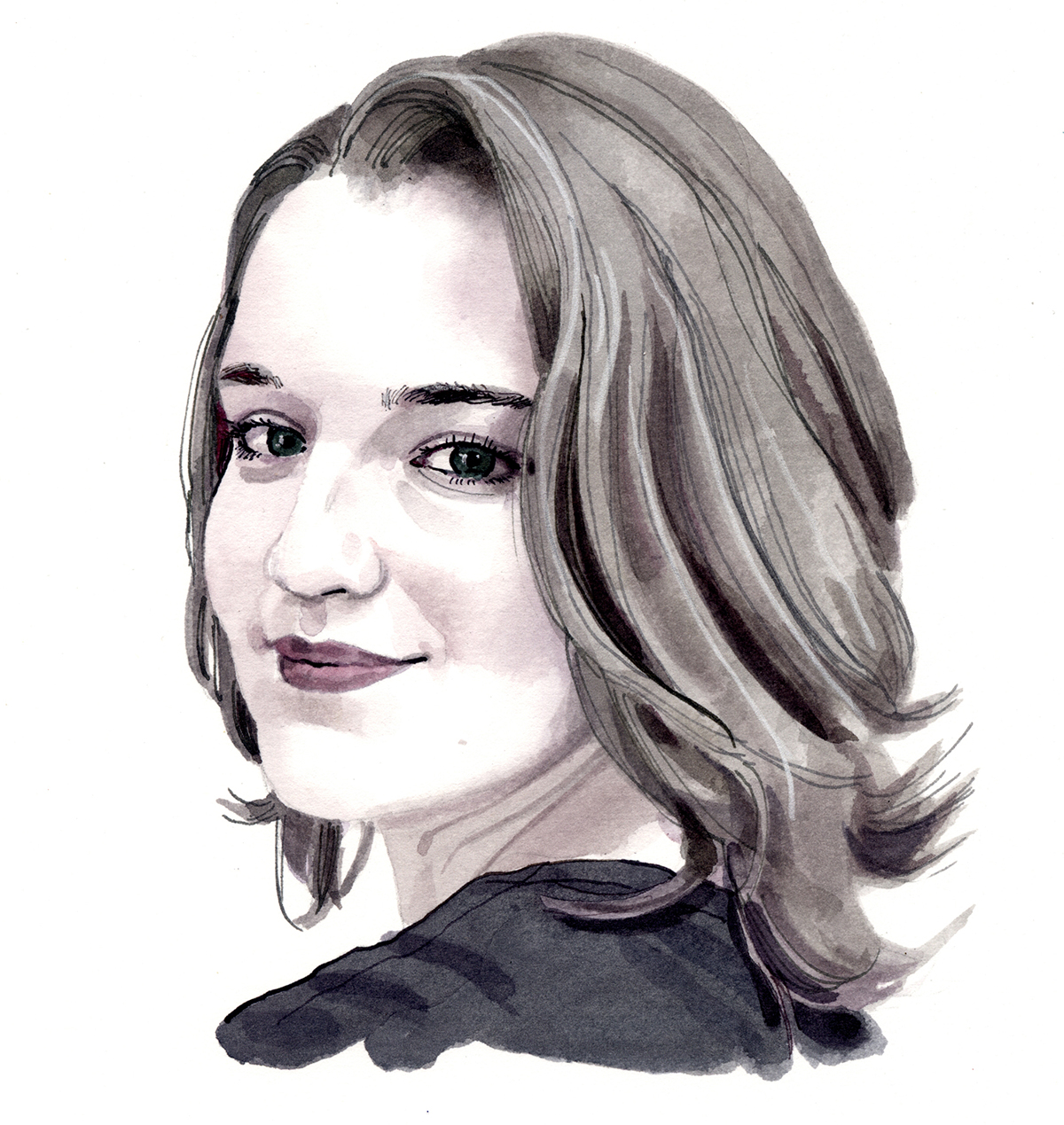Sarah Wayer Seeks Ways to Strengthen Father-Child Bonds
The graduate student focuses on building relationships between adopted children and their fathers.

Illustration by Matthew Cook
Sarah Wayer Seeks Ways to Strengthen Father-Child Bonds
The graduate student focuses on building relationships between adopted children and their fathers.
At the end of a long day of workshops, adoptive parents formed a circle. Inside, their children sat with TCU students and faculty, describing their favorite moments of the day.
“My favorite part of the day was acting like a lion.”
“My favorite part of the day was playing basketball.”
“My favorite part of the day was getting to hang out with my mom and dad.”
Sarah Wayer said these were her favorite memories from the Hope Connections 2.0 camp. Offered by the Karyn Purvis Institute of Child Development, the camp aims to help adoptive parents bond with their children.
Wayer is pursuing a master’s degree in developmental trauma, a psychology program administered by the institute. Her research explores how fathers can strengthen relationships with their adopted children, some of whom have already endured major trauma.
While in high school in Florida, Wayer co-founded the nonprofit Orphan to Heir. The organization provides leadership training for church pastors as well as Sunday school lessons for children in the African country Eswatini.
Purvis Institute
The experience led her to TCU’s Purvis Institute, a leading voice in the research, education and outreach for children who have experienced neglect, abuse and trauma.
In 1999, Karyn Purvis developed the Trust-Based Relational Intervention method, a set of techniques and games that families can use to foster mindful interactions and strengthen relationships.
“The heart of TBRI is connecting, and that’s where we have seen the most change in families — in building attachment relationships between parents and children,” said Casey Call ’99 MEd (MEd ’04, MS ’11, PhD ’12), assistant director of the Purvis Institute and assistant professor of professional practice in psychology. “And once they’ve got that solid foundation of connection, then the other things become easier.”
Case said she hopes to expand the intervention method to 25 states and 25 countries by 2025.
While Wayer spent hours at the TCU library poring over child development studies, she noticed that research on father-child bonds was lacking.
“My household is kind of flipped, so my mom worked primarily, and my dad was more of a stay-at-home dad,” Wayer said. “That’s something that really influenced who I am today.”
Wayer analyzed the institute’s bonding practices to understand which techniques were most helpful to fathers.
“Most of the time when researchers are doing studies with children, it’s their primary caregiver who will bring them into the lab,” Call said. “Oftentimes, that tends to be the moms. And so we see a lot of research with moms and babies and attachment.”
Family Bonding Exercises
Wayer found that mothers and children tended to bond through nurturing, caregiving activities, and fathers most often took on the role of a playmate to connect on a deeper level.
“Fathers develop trust with their children,” Wayer said. “They’ve made connections with their children, just in a different way.”
“Fathers develop trust with their children. They’ve made connections with their children, just in a different way.”
Sarah Wayer
One of the bonding techniques Wayer found most effective for fathers is called matching, when a parent mirrors the child’s actions to reaffirm their choices and establish a sense of trust.
“If we’re doing drawing and my child chooses a blue marker, I’ll be choosing a blue marker,” Wayer said, “because that says, ‘Hey, I see, I saw what you like, and I want to do that too.’ ”
Adam Hillard, a family support specialist at the Adoption Exchange in Denver, offers coaching services to help families with newly adopted children.
“To create that long-standing relationship, it’s difficult with our kiddos from hard places because their relationships have been maladaptive or unhealthy,” Hillard said. He uses trust-based relational methods to help parents “be very intentional about the way you’re parenting and interacting with your kiddos.”
Hillard said he is excited to read Wayer’s findings as he has tried to strengthen bonds between fathers and adopted children.
“A lot of times you see mothers becoming the primary caregiver because that’s … traditionally the role they take on, and the fathers take a step back,” Hillard said. “A lot of the work that I’ve done specifically with fathers is helping them recognize the importance of the dance between structure and nurture.”
Wayer plans to compile her research into a pamphlet with tips to help fathers of adopted children form deep and meaningful connections with their kids.
Wayer wants to be a counselor in child and family therapy. “It’s hard work, but it’s something that I love to do,” she said. “Now I have the opportunity and the knowledge and the skills and the ability to be the best at that.”

Your comments are welcome
Comments
Related reading:
Features, Research + Discovery
Collin Yoxall’s Research Helps Advertisers Account for Social Media Fatigue
Platforms enable two-way conversations between brands and consumers, but users may be ignoring advertisements in their feeds.
Features, Research + Discovery
Whitney Roach Seeks Ways to Make Schools More Inclusive for Queer Students
In K-12 schools, the researcher found little support for non-heteronormative students and families.